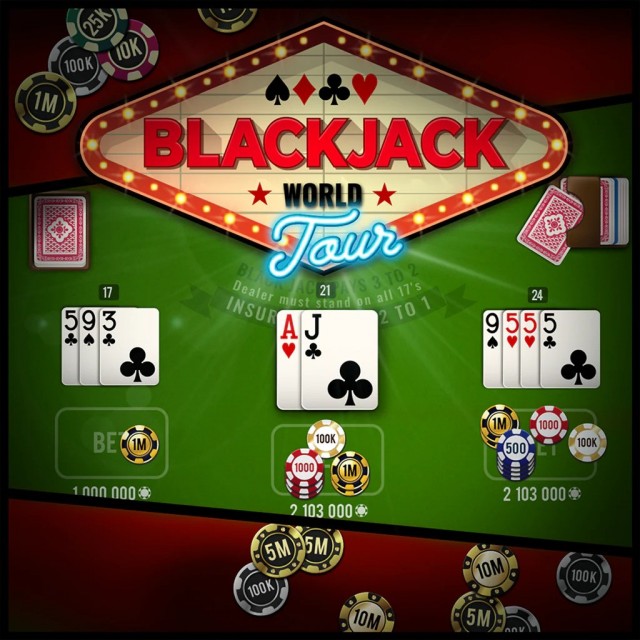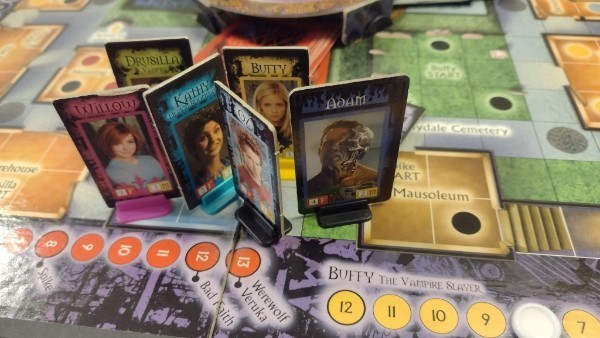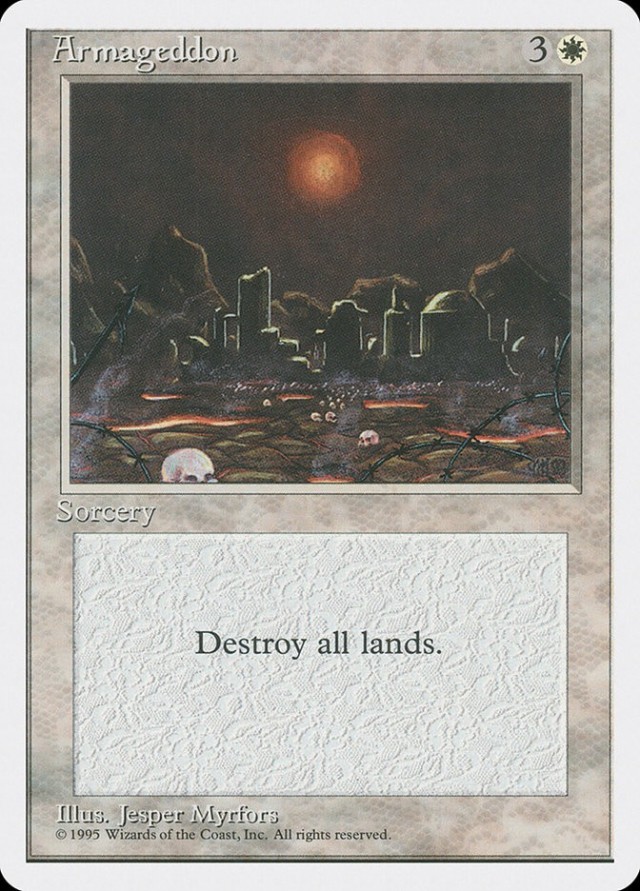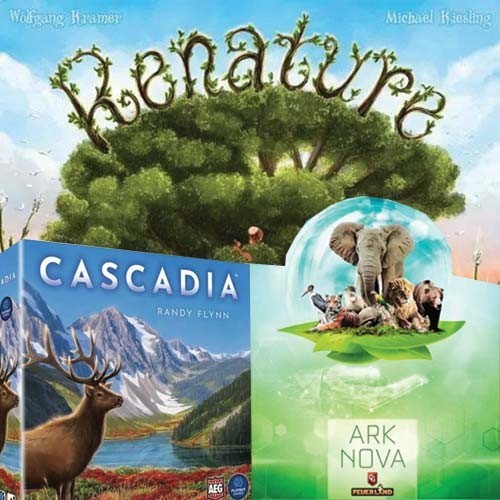I've been thinking quite a bit lately about games as they sit on the shelf, collecting dust, as less of a "durable good" or "commodity" as much as "collector's item". What I mean by this is that, as I'm sure you know, most games have a short lifespan of "buzz" on the Internet, then appear to ride off into the sunset. I'm not sure that they end up being shelved indefinitely, but they certainly don't command the attention as they did when they were all fresh and new. Maybe that's just human nature, to want to play with the new, shiny toy even though the one you got last week is still in perfect working order and just as awesome as it was when you clicked "buy it now" two weeks back. But maybe it's not. Maybe it's because the allure isn't a "new game to play" as much as "getting something new" and having something to look forward to.
But let's start with the original thought: What is the useful lifespan of a board game? I used to think, probably in a minority opinion, that games are to be kept and played often rather than played a lot for a short period and then shelved, only to be re-investigated sparingly to quench a particular hankering. But now that I'm laid up, and my friends are pretty much out of action or disinterested, I'm starting to see things from the perspective of someone who doesn't value the idea of getting new games often, but from someone who wants to play games that I have, and enjoy, more often. Because I've been playing video games more often, I've started comparing board games to other types of interactive entertainment, and the realization has been pretty eye opening.
When you look at a video game, especially an RPG game, for instance, there's maybe one or two "plays to completion" in the game. That said, with each play consuming 20 hours or more, and 100 hours or more in some cases, the fifty bones you drop on a video game may be better spent than the fifty you spent on a boardgame that will be played an average of 10 times before shelving it, with each play being two hours. The difference is that with video games, you generally play the hell out of them until completion, whereas with a board game, you'll likely play it four or five times in rapid succession, then sporadically, and then rarely after, if ever again. I'm not even sure that this has to do with the quality of a game as much as the human condition, especially when it comes to collectors and OCD completists.
Then look at a first person shooter, like Halo was or like Battlefield 3 or COD: Black Ops is. People spend hundreds of hours a MONTH playing those games, and honestly, I'd say it's more in line with a boardgame since they're both forms of entertainment that require other people to utilize. So, when looked at under that lens, you can see that board games are not nearly the value, when looked at from a use perspective, as some of these games might be. I mean, even the most die-hard Heroscape guy can't say that he plays Heroscape as much as a FPS enthusiast plays online shooters. Thus, it's certainly arguable that the board game hobby itself isn't about the actual play value as much as the collecting aspect, and certainly not about the lifespan of a board game as a durable good.
Let's go back and take a look at board games when viewed as a durable good. What is the lifespan of a game? And should it be judged by that? At what point does one accept that they will never play a game again and the only reason it's still sitting on the shelf is sentimentality? I'm not very sentimental or nostalgic in this regard, so as a pragmatist, it's a very, very short time for most of my games. Some games, though, such as El Grande or Space Hulk, have such a high probability of being played that I cannot envision arbitrarily dismissing them.
By that rationale, I'd have to say that for most games, their viable lifespan is not all that long. As noted, this doesn't include a very few games, arguably "the classics" or games you particularly love, that may see use for years and years. And in my research for this article, which was comprised of talking to a great many folks without telling them why I was asking the question, it appears that I am correct in assuming that "value" isn't the real motivator, and that people hold onto games not primarily based on their interest in playing the game a lot. Primarily, the motivation they almost universally offered was that they wanted the 'experience' of playing the new game.
What this exercise has shown me is that my original view that a board game is really not that different from other forms of entertainment as I once thought. You go out and buy a DVD not because you plan to watch it four hundred times, but because you believe that you will watch it enough times in the long-term to justify its price, and you want it to always be available to you. You buy video games going into it for the experience as well, not really taking into consideration how long the game will last, or how much value-per-hour you're going to receive for your money.
So it's not really about the value of the game as far as how many times you will play it, it's about feeding your desire to have something available to you, on demand, and the experience. Boil that down, and it appears to be about instant gratification. But with board games, it seems, the mental justification often is there for the purpose of allowing the purchase rather than justifying it based on value terms. In other words, the person getting the game has no real anticipation of playing it so many times that it would justify the purchase, but simply owning it is justification and reward in and of itself.
What I find interesting about board game collecting, or should I say collectors, are the parallels to substance addiction. I've talked to, and read Internet forum posts from, ample people who brag about ordering something online and how the waiting is unbearable; how they look outside at the post box, praying their wee parcel of goodness will appear. It's akin to the guy who calls his dealer up looking to score, and how he can't wait for the black-on-black Maxima with 20" rims to appear in his driveway. Continuing with the corollary, the game will most certainly prove to be a short-term fix, like that eight ball of coke, because before long, the "new game smell" will have worn thin, and the guy will be back at BGG researching the next purchase to ease their need for a new game. If you then pair that with the desire for the "experience", irrespective of the value received or the cost, it really starts looking like an addiction.
I'd point out that there's nothing wrong with this in and of itself for many people. People tend to need something to do with their time, and collecting boardgames is certainly far less destructive than drug use, or at least to one's health. But what I am saying is that, like drug use, the enjoyment tends to manifest more in the researching and collecting than the playing. Sure, playing the game is great fun, but the fact that the game gets stale so quickly and becomes perpetually shelved so soon after purchase would support the idea that "having something to look forward to" vis-a-vis waiting for a parcel to arrive is the real draw. Sort of like a kid's anticipation before Christmas, waiting for the special day that they can open the presents. It's not so much the present as the anticipation and the act of opening it.
So, the question then becomes, does the quality of the game really matter all that much, in the long run? There are some truly great games out there, but there's far more games being churned out by the Euromills that are simply re-themed versions of other games with almost identical mechanics, or worse, the nebulously themed mash-up games. Yet, these games seem to be consistent sellers just as the great games are, although their buzz dies on the vine far sooner than a good game's buzz would.
If the draw is in the collecting, and the anticipation, then the answer becomes clear: a great game will see the table more often, but in the grand scheme of things, mediocre games that are played 5 times and then sent to the bench are just as intrinsically valuable because they feed the need to collect, or the need to perpetually anticipate an inbound game. Maybe the "bragging rights" of having a great game on your shelf is nice, but were it the primary motivator, people would have nothing but the greats, with the chaff being sold or donated off, which is simply not the case with many, many board gamers.
But let's get back to the idea of collection versus playability...if a game is poor or average, and so many games are superior, why keep them? Why have a collection in the mid hundreds if the games will very likely never see a table again? This is the one thing I just can't seem to figure out. Maybe it's the pain of having to sell and ship games, maybe it's the unappealing idea of spending money on something and then selling it for less shortly thereafter.
Maybe it's because the only viable alternative is BoardGameExchange, where you can rent them. There simply is no "Gamestop" for Board Games as of yet. Some FLGS stores provide a buy-back service, but again, this isn't utilized often because every FLGS I've been to, and there have been a great many of them, there is almost never much "used game" inventory with respect to board games. A lot of Magic cards and miniatures, but very few boardgames. Thus, I'm let to believe that the demand for such a service doesn't truly exist, or all FLGS would be doing it, and it would be the norm.
This is compounded by the fact that unlike video games, boardgames are far more expensive to dispose of via the same means normally available to other entertainment venues. Shipping them is expensive, which is hampered by the fact that most online sellers offer free freight upon initial purchase, and therefore upon sale, the price must generally be exponentially decreased in order to attract buyers. It's a real pisser, in short. Sure, few games will actually appreciate, but those games are generally the ones that the original purchaser is most inclined to keep.
Even when you consider trading games online, there are significant barriers as you are losing the price of the initial purchase, the initial shipping price, and then the price to ship the game to another person, all of which adds up to a snowballing financial loss for each game that is traded. There are obvious deterrents to buying mediocre games, available for all to see, yet people for some reason are compelled to continue buying crap games by the bushel, only to perpetually store them.
Whatever the case may be, it surely appears to an outside observer that boardgame collecting is just as addictive as crack or tobacco, and provide the same fix as a junkie gets with virtually the same cycle: the continual craving for more, the anticipation of the arrival, the use which results in euphoria, and then, finally, the crave hits again and the 'user' goes back out 'doctor shopping' on BGG to find their next fix.
But, the question remains: If it's not an addiction or mental issue, why would one continually buy mediocre games and shelve them, knowing they'll be hard to sell and thus will cause financial loss? Why not simply buy only the best games, and forgo the poor ones? The only conclusion I can come up with is that it is indeed either an addiction or mental disorder along the lines of 'hoarding'. I'm sure there's a minority of aficionados who want, for idealistic reasons, to collect every single boardgame ever made, but I'd argue that it's a very, very small and quiet minority. The majority just seem to want more and more, and it doesn't matter how much the games get played or how fun they are.
This idea is cemented by the fact that I cannot tell you how many people I know that have bought hundreds of dollars in games that are sitting, right now, on their shelves with the shrink wrap still on them. And it's likely that they will ALWAYS sit there, with the shrink on. So, what purpose could that serve? If you buy something and haven't even bothered to open it a year later, let alone actually use it, it's a good bet that you might have an addiction. Now, I'm not saying that EVERYONE is like this. I know plenty of people that use weed or drink a lot, and are productive people that aren't addicted. What I am saying is that there's a definite subculture of addicts, or at least those who exhibit addictive behavior. I think it's fair to say that this is the core constituency of "The Cult Of The New".
My conclusion really comes down to the idea that boardgames, more so than video games, are not actually a durable good or commodity. They are, for many hobby gamers, a consumable item prone to few uses before being discarded, but that happens to be collectible. Sort of like a Pez dispenser, really; they're used several times, then set aside as a decoration. But for other folks, the game will sit on a shelf for many, many moons, maybe even in the shrink wrap having never been played, because the goal may never have been to play the game at all; that was the simply subtext to justify the purchase. The real goal was to have something 'precious' sit on your doorstep when you come home. In both cases, though, the useful lifespan of virtually all boardgames is incredibly short, and the fact that the game sits eternally on a shelf makes it no less discarded, it simply redefines the garbage bin.
 Games
Games How to resolve AdBlock issue?
How to resolve AdBlock issue? 












